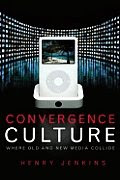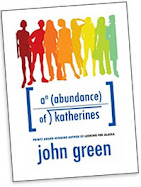One of my favorite villains is Iago of Shakespeare’s
Othello. There’s just something about that man I love to hate. Or perchance (as Shakespeare would say), I hate to love him. Regardless, however, of my emotional disposition, Iago offers the audience insights into his dastardly plan to destroy Othello. He tells the audience that he will “
pour this pestilence”—his lies and innuendos regarding Desdemona—into Othello’s ear, which will ultimately “enmesh them all.” Not one to make empty promises, Iago does just that and “poisons” Othello’s mind with his virulent and deadly seeds of jealousy.
As it happened, shortly after I read those lines, I was listening to an audiobook. I was walking around with my earbuds firmly in place and in a bit of a trance as sometimes happens when I listen to books, and it occurred to me that if I would have been listening to
Othello, Iago would have been pouring his “pestilence” into my ears. Although Iago’s words weren’t directed at me, it was nonetheless an unsettling thought. And not much later, as I listened to Anne Rice’s
Interview with the Vampire, I experienced another unsettling moment, for the interview is taped. There I was, driving through a desolate and lonely stretch of highway in Illinois late one night, with my gas tank almost empty, in a horrible lightning storm, listening to what was purportedly a taped interview with the vampire, Louis Pointe du Lac. It was as though he were speaking to me. It was just weird.
That was about ten years ago. My obsession has since grown. Most people buy listening devices to listen to music. Admittedly, I loaded a CD and about fifteen random songs on my newest device, but I purchased it to hold my audible books. In fact, I currently have four listening devices: an MP3 player, a Walk(wo)man, a CD player small enough to clip onto my jeans, and an iPOD. I have a listening device for every occasion. I listened to my MP3 player enough that I decided to invest in rechargeable batteries so I would be a green listener. I listen while driving, while washing dishes, while exercising, and while working in my yard. In fact, I will actually clean my house, one of my least favorite chores, so that I’ll have an excuse to listen to a book. And conveniently, as a literature professor, I must (I tell myself) read everything I can get my hands on, whether it’s Stephen King, Cornel West, Jane Austen, Susan Choi, Ralph Ellison, M.T. Anderson, Marcus Zusak, Patricia Cornwell, Homer (not Simpson), or Jeffrey Toobin.
I do have a few guidelines regarding my listening obsession:
I refuse to listen to an abridged book (I don’t read them either). Abridged dictionaries are fine, and in fact, I own a few. But I haven’t felt compelled to listen to a dictionary. If I ever do, I’ll seek help.
I seldom listen to books less than 8 hours long. I want to luxuriate in the voice, the plot, and the character development of the book.
I won’t listen to some performers. Many years ago, before I actually considered listening to books an indulgence and in the days of boom boxes, I had to make about a 4 hour drive. I didn’t have a working cassette player in my car so I lugged along my massive boom box and dozens of batteries so I could listen to a book for a class I was taking. The reader’s voice was so annoying that I erased his voice and name from my memory along with the title of whatever Faulkner book I was listening to. Fortunately, I didn’t erase the tape because the book belonged to the library. But I wanted to. I still have issues with Faulkner.
Don’t get me wrong. I still love the scent and texture of books, the space they take in my bookcases, the pure physicality that books offer. They provide a sensuous pleasure, some more than others. But there is also for me a deep pleasure in hearing a voice as it pours its pestilence into my ear and speaks only to me.






